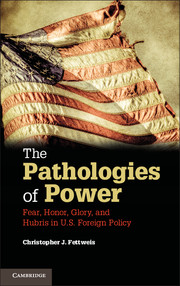2 - Honor
Credibility, Resolve, and Paper Tigers
Published online by Cambridge University Press: 05 June 2014
Summary
Unlike in times past, honor is not central to the identity structure of citizens of modern, liberal, information-age nation-states. Any leader who would attempt to inspire twenty-first-century society with direct appeals to the national honor would likely be met with disdain and ridicule. The term has been out of fashion for generations, having become connected to outdated conceptions of masculinity more relevant to the Middle Ages than to today’s international system. Honor might have compelled Louis XIV to wage wars against his neighbors and inspired foppish noblemen to meet at twenty paces, but such concerns are surely absent from modern, rational discourse. Or so we think.
However anachronistic the term might sound to modern ears, the remnants of honor linger on in today’s international system, if under slightly different guises. The main evolution in the concept has been in how it is discussed, not its ultimate importance in explaining state behavior. Few leaders worry about the status of their honor; they do worry, at times obsessively, about their credibility. “Whatever course you follow,” warned former Vice President Dick Cheney, “the essential thing is to keep commitments, and to leave no doubts about the credibility of your country’s word.” The “credibility imperative,” to use historian Robert McMahon’s phrase, has occupied a central position in every major U.S. foreign policy debate in the last sixty years, affecting discourse and decisions in predictable – and deeply pathological – ways. To the extent that states act in pursuit or protection of their honor in its modern form, they usually do so in opposition to their actual, measurable, tangible interests.
- Type
- Chapter
- Information
- The Pathologies of PowerFear, Honor, Glory, and Hubris in U.S. Foreign Policy, pp. 94 - 140Publisher: Cambridge University PressPrint publication year: 2013



